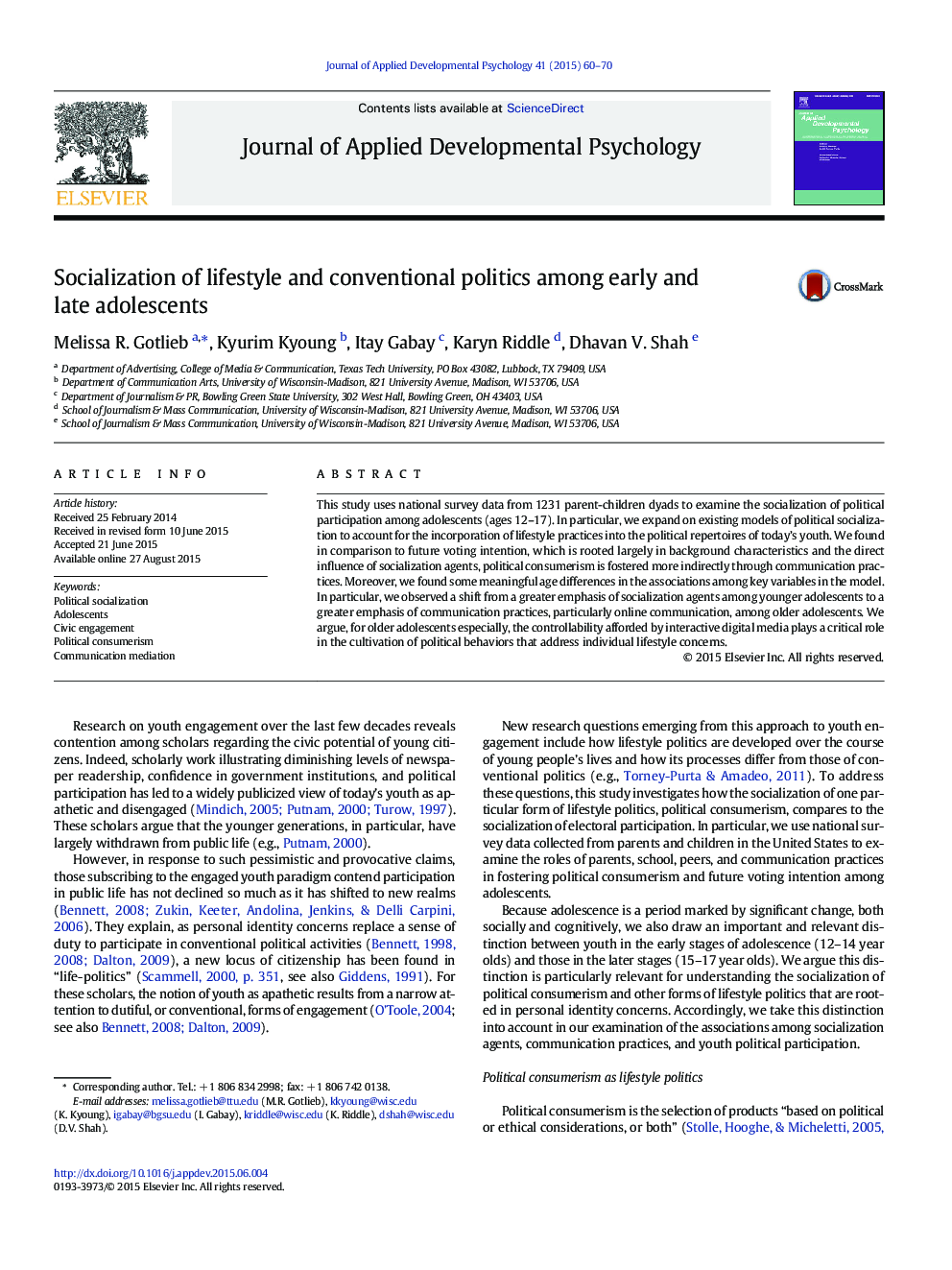| Article ID | Journal | Published Year | Pages | File Type |
|---|---|---|---|---|
| 359606 | Journal of Applied Developmental Psychology | 2015 | 11 Pages |
This study uses national survey data from 1231 parent-children dyads to examine the socialization of political participation among adolescents (ages 12–17). In particular, we expand on existing models of political socialization to account for the incorporation of lifestyle practices into the political repertoires of today’s youth. We found in comparison to future voting intention, which is rooted largely in background characteristics and the direct influence of socialization agents, political consumerism is fostered more indirectly through communication practices. Moreover, we found some meaningful age differences in the associations among key variables in the model. In particular, we observed a shift from a greater emphasis of socialization agents among younger adolescents to a greater emphasis of communication practices, particularly online communication, among older adolescents. We argue, for older adolescents especially, the controllability afforded by interactive digital media plays a critical role in the cultivation of political behaviors that address individual lifestyle concerns.
